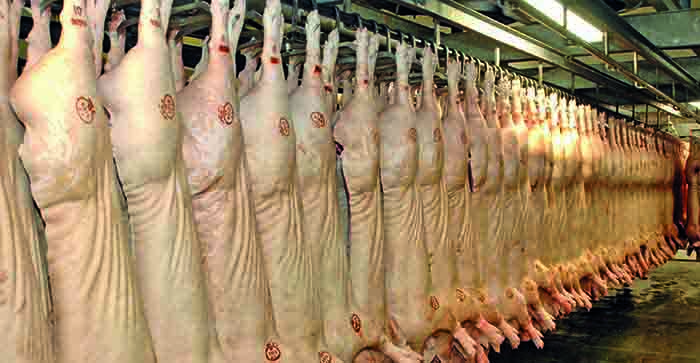The NPA has set out the case for how small and medium-sized abattoirs should be supported under Defra’s new funding scheme.
Farming Minister Mark Spencer announced in February that Defra would be developing a Smaller Abattoir Fund. Small abattoirs have been in decline for many years, and, in the past few days, news has emerged of a local Cumbrian plant that has been forced to close. The loss of these local abattoirs is making it increasingly hard for farmers to find outlets for their stock.
Mr Spencer said: “If farming is to flourish then we need to get the fundamentals right – abattoirs are key to the food supply chain and there is clearly a need to support smaller providers in this area.”
Defra has been seeking the views of industry bodies on how the fund should look and, in its response, put together with guidance from the Association of Independent Meat Suppliers (AIMS), the NPA stresses that small- to medium-sized abattoirs are vital to the pig industry in providing alternative markets to the larger processors.
They also provide additional capacity in the event of breakdowns and general delays in slaughter capacity at times of acute pressure, as experienced during the pig backlog.
“Therefore, support for this specific sector of the industry is essential to protect animal health and welfare, and never more so as the slaughtering and processing sector continues to consolidate resulting in pigs being transported ever greater distances for slaughter,” the response states.
The NPA’s key points on the fund include:
- Establishments operating up to 10,000 livestock units (LSUs) per year should be eligible to access funding. This would encompass a number of small to medium sized operations that need financial support to enable them to progress their market share, access export partners and provide valuable services to pig producer members.
- Eligibility should be based on the capacity, viability and value of the proposed business plan, not necessarily the viability of the current business, although this should be considered. Funding should be focussed on facilitating innovation and growth and accessing novel markets and customers.
- Current core operating costs also need to be considered within the proposal, to ensure that the business is operating efficiently but there should be allowance for economies of scale should the support fund increase production volumes and revenue.
- The NPA supports AIMS’ position in suggesting the eligibility criteria should be as flexible as possible to permit a variety of applications.
- Communication with the sector, to promote awareness of the fund is key. We would suggest an extensive marketing/comms campaign using active industry organisations like AIMS and BMPA, who can also provide support and assistance during the application process and beyond.
- The application process should be electronic with simple, clear guidance that assists an applicant in completing their application.
NPA chief executive Lizzie Wilson said: “We are pleased that Defra is developing this fund as it is vital for our sector that we try to stem the loss of these vital lock(?) outlets for pigs.
“We are working in close collaboration with AIMS and others to help Defra come up with a workable and effective scheme.”




